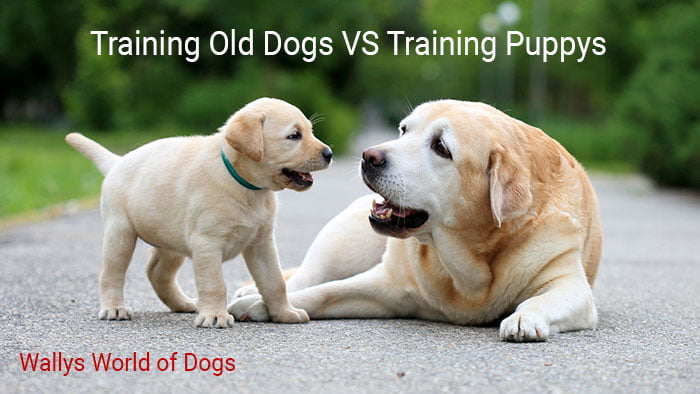
When Should you Start Obedience Training for your Dog?
Many first-time dog owners might not know when is the best time to begin obedience training for their dogs. While you can train your dog at any age, it is easier and more beneficial to train them when they are puppies. Old dogs can indeed learn new tricks, but it is much more difficult. In this article, our Long Island dog training experts offer advice on how and when to begin training your dog or new puppy.
Obedience training for your puppy should begin as soon as you bring them home. The first days you spend with your new puppy should be filled with fun, but don’t forget the importance of potty training and socialization.
New dog owners may also find obedience training to be very difficult. Training your puppy won’t be easy, but the advice we’ve put together will help make it manageable and fun!
Benefits of Early Dog Obedience Training
Beginning obedience training for your pet while they are a puppy is essential for making sure they learn as much as they can. Dogs work like humans—the younger they begin to learn something, the easier it is to remember a skill and master it in the future.
The biggest benefit of obedience training your puppy is the strong bond you’ll share. Well-trained animals respect their humans and love them unconditionally. You will also likely have a better relationship with your pet because of their obedience.
Obedient dogs are also generally friendly dogs, meaning that you and your dog will be able to enjoy plenty of socialization with other dog owners. You won’t have to worry about watching your dog around kids or other animals because you know they will be well-behaved once they have been properly trained.
Tips for Training Your Puppy
Training puppies is difficult, and there are a few tips that new dog owners should keep in mind. Remember that you won’t be able to train your puppy overnight—it will take time and dedication to see positive results.
The best way to train your puppy is with positive reinforcement. Positive reinforcement involves distributing rewards to your puppy in order to mark desired behaviors, like following simple commands. First impressions can go a long way, and this is the best orientation to training for a puppy because it keeps them focused and motivated.
Another important part of puppy training is consistency. Try to keep your puppy on a training schedule, and try not to overwhelm them with too many new expectations all at once. With consistency and repetition, you can expect very young puppies to learn basic commands like “sit” or “stay” in as few as eight weeks!
Part of consistently training your dog involves short training sessions. Puppies have very short attention spans, so try to keep sessions to 5-10 minutes in time per session. You can have several short sessions per day, or as many as you can do daily within your schedule.
Finally, to make sure you get the most out of obedience training, try to stay positive and patient with your puppy. Obedience training takes time, and you can’t expect your puppy to learn a new trick every single time. End each session with treats and love so that they will be receptive to their training in the future!
Can You Train Older Dogs?
Dog obedience training for older dogs is possible, but it can be very difficult and time-consuming. You cannot train an older dog like you would train a younger dog – and it can take much longer to see any results.
To effectively begin training with your older dog, you will want to use extremely short training sessions at multipple times during the day. Old dogs can be more set in their ways, and beginning with two-minute training sessions at a time can help motivate an older dog to accept and take to training with far less stress.
While training your older dog, you may want to try and incorporate hand gestures into your routine. Many older dogs have poor hearing, and hand gestures can help them understand what you’re trying to communicate.
The most important part of training an older dog is, again, patience. Old dogs will take even longer to learn commands than puppies, especially if they have never received training before. Overall, make training fun and take your time—your dog will appreciate it!
Conclusion
Training a dog is never easy. Whether your dog obedience training begins while your dog is a puppy, or when they are already a few years old, you are sure to have some difficulty along the way. Don’t get discouraged, and treat your dog kindly and with patience.
If you stay consistent and make training engaging and exciting, you and your dog will both enjoy training and they will learn commands much more quickly. Obedience training will give you a deep bond with your dog, who will love and respect you unconditionally.
Have more questions about training your puppy? Contact us with any questions you may have!
